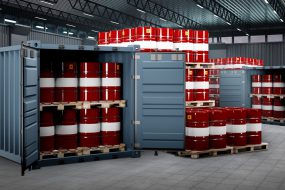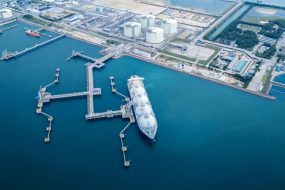

In the rapidly evolving world of energy production, particularly in remote and inaccessible areas, logistics plays a crucial role. Managing people, equipment, and supplies across rugged terrain and unpredictable conditions requires innovative, flexible solutions. This article examines how advanced logistics strategies are enabling oil and gas companies to enhance efficiency, reduce costs, and promote sustainability.
Why smarter logistics matter
As global energy demand grows, oil and gas companies are under pressure to streamline their operations. This is especially true at remote sites, where traditional logistics models often fail due to inadequate infrastructure and long distances. To overcome these challenges, companies are turning to modernlogistics solutionspowered by technology and innovation.
Key challenges in remote logistics
Operating in remote areas brings several challenges:
- Harsh environments: Extreme weather and rough terrain can delay deliveries and damage equipment.
- Limited infrastructure: Poor roads, ports, and communication networks make transport and coordination difficult.
- High costs: Moving goods and people over long distances is expensive.
- Unpredictable demand: Market shifts require logistics systems that can adapt quickly without sacrificing safety or efficiency.
Related reading: Unpacking the secrets: Logistics’ pivotal role in oil and gas success
Technology transforming oil & gas logistics
New technologies are transforming the way logistics operates in the energy sector. Here are some of the most impactful innovations:
- IoT and sensors: Internet of Things (IoT) devices track equipment and supplies in real-time, enabling teams to make faster, more informed decisions.
- Blockchain: This technology improves transparency and traceability in the supply chain, reducing fraud and boosting accountability.
- AI and predictive analytics: Artificial intelligence helps forecast disruptions and optimise delivery routes, thereby reducing downtime and costs.
- Drones and autonomous vehicles: These tools expedite deliveries and enhance access to remote sites, particularly in areas with limited road access.
Multimodal transport: A smarter way to move goods
Utilising multiple types of transportation—such as trucks, trains, ships, and planes—can enhance logistics’ flexibility and reliability. This approach, known asmultimodal transportation, is gaining popularity in the oil and gas industry.
Benefits of multimodal logistics
- Flexibility: Companies can switch between transport modes based on cost, speed, or availability.
- Lower emissions: Optimising routes and reducing road transport helps cut carbon emissions.
- Stronger supply chains: Having more transport options makes it easier to handle delays or disruptions.
Smarter warehousing and inventory management
Efficient warehousing is crucial for maintaining smooth operations at remote energy sites. Modern warehouse systems utilise automation and real-time tracking to enhance accuracy and minimise delays.
Innovations in warehousing
- Automated systems: Machines handle storage and retrieval, reducing errors and speeding up operations.
- Real-time tracking: IoT and RFID technologies provide managers with up-to-date inventory data, enabling them to make informed decisions.
- Strategic locations: Placing warehouses closer to remote sites cuts transport time and costs.
Looking ahead: The future of energy logistics
As the energy industry shifts toward sustainability and digital transformation, logistics must evolve, too. Future-ready logistics systems will be more connected, efficient, and environmentally friendly.
Building sustainable supply chains
Oil and gas companies are working to reduce emissions and waste. This includes utilising electric vehicles, renewable energy sources, and environmentally friendly materials in their logistics operations.
Strengthening resilience through collaboration
A strong supply chain depends on more than just technology. It also requires close collaboration between suppliers, logistics providers, and energy companies. Sharing data and working together enhances transparency, reduces risk, and enables everyone to respond more quickly to change.
Conclusion
Smart logistics solutions are essential for oil and gas companies operating in remote areas. By embracing new technologies, utilising multimodal transportation, and enhancing warehouse operations, these companies can overcome significant challenges and develop more efficient, sustainable supply chains. As the energy sector continues to evolve, logistics will play a key role in driving growth and resilience.
Ready to optimise your remote energy operations? Discover how Aramex delivers tailored logistics solutions for the oil and gas sector—enhancing efficiency, reducing costs, and supporting sustainability in even the most challenging environments.Explore our energy logistics servicestoday.




